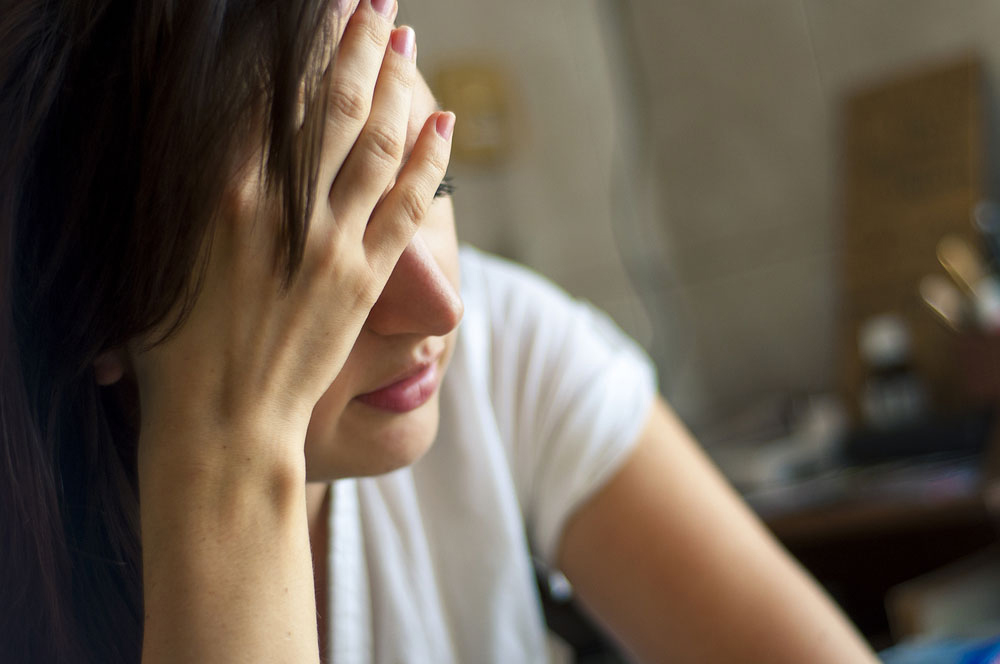Alcohol + Anxiety
Do you ever feel like you rely on alcohol to calm anxious feelings? Or, do you feel like alcohol makes your anxiety worse? Research has found that over 20% of individuals with an anxiety disorder experience issues with alcohol abuse. This guide explores the common yet complex relationship between alcohol use and anxiety. Our team at Georgia Sky is here for you and ready to help.

Key Takeaways:
- Reciprocal Relationship: Alcohol temporarily reduces anxiety but chronic use worsens it, creating a detrimental cycle of dependence.
- Long-Term Consequences: Chronic alcohol consumption disrupts neurotransmitters like serotonin, leading to increased anxiety over time.
- Hangxiety: The anxiety experienced after heavy drinking illustrates the rebound effect, intensifying anxiety as alcohol levels drop.
- Panic Attacks: Alcohol can provoke panic attacks through physiological effects that mimic panic symptoms, particularly in those with anxiety disorders.
- Supervised Detox: Withdrawal heightens anxiety, making medically supervised detox essential for safely managing symptoms and aiding recovery.
What Is Anxiety?
Anxiety is a natural and common emotional response that involves feelings of tension, worried thoughts, and physical changes like increased blood pressure. However, when these feelings become constant, overwhelming, or are triggered easily over situations that are not proportionately threatening, they can be classified as an anxiety disorder.
Characteristics of Anxiety
- Physical Symptoms: These can include heart palpitations, rapid breathing, excessive sweating, fatigue, and trembling.
- Cognitive Symptoms: Anxiety affects how individuals perceive and react to situations. It often manifests as persistent worry, racing thoughts, and difficulty concentrating.
- Emotional Symptoms: This might involve feelings of dread, panic, or impending doom, even in non-threatening situations. Anxiety can make it difficult to control emotions, leading to a disproportionate emotional response to everyday events.
Types of Anxiety Disorders
Anxiety disorders encompass various conditions where anxiety is the primary symptom:
- Generalized Anxiety Disorder (GAD): Chronic anxiety, worry, and tension, even when there is little or nothing to provoke it.
- Panic Disorder: Characterized by recurrent, unexpected panic attacks—sudden periods of intense fear or discomfort that escalate quickly.
- Social Anxiety Disorder (SAD): Intense fear of social or performance situations in which humiliation or embarrassment may occur.
- Specific Phobias: Excessive and irrational fear of specific objects, situations, or activities that pose little to no actual danger.
Alcohol and Anxiety: A Two-Way Relationship
The relationship between alcohol and anxiety is complex and reciprocal. Alcohol is commonly used as a short-term solution to alleviate anxiety; however, its prolonged use can significantly worsen anxiety symptoms. This creates a negative cycle which can affect overall mental health and wellness.
- Immediate Effects of Alcohol on Anxiety: Alcohol acts as a central nervous system depressant, temporarily reducing anxiety. This effect is temporary and misleading, as it masks rather than resolves underlying anxiety.
- Long-Term Effects of Alcohol on Anxiety: Chronic alcohol use disrupts brain chemistry, particularly affecting neurotransmitters like serotonin and GABA, which regulate mood and anxiety. This leads to increased anxiety levels during periods when alcohol is not consumed, exacerbated by hangxiety.
Hangxiety: Anxiety After Drinking
“Hangxiety,” the anxiety experienced after drinking, particularly after heavy use, highlights the anxiety rebound effect when blood alcohol levels begin to fall. This phenomenon can be intense for those with pre-existing anxiety disorders and is a significant factor in the maintenance of alcohol use disorders.
Research has found that hangxiety might contribute to the vicious cycle of drinking in socially anxious individuals, who may drink to relieve anxiety but experience increased anxiety as the alcohol wears off, thus prompting further drinking. Although unintended, this tendency leads to more severe anxiety symptoms over time.
Panic Attacks and Alcohol
Panic attacks are sudden episodes of intense fear that peak within minutes. Alcohol consumption can both trigger and worsen these over time.
- Alcohol as a Trigger for Panic Attacks: Drinking alcohol can provoke panic attacks due to its physiological effects, such as increased heart rate, lowered blood sugar, and dehydration. These changes can mimic panic attack symptoms, triggering an episode, especially in individuals prone to anxiety disorders.
- Chronic Alcohol Use and Panic Disorder: Long-term alcohol use can disrupt neurotransmitters like serotonin and GABA, which regulate mood and stress. This disruption can increase the risk of developing panic disorder, characterized by recurrent panic attacks and persistent concern about future attacks.
Alcohol Withdrawal and Anxiety
During alcohol withdrawal, the body undergoes significant stress as it adjusts to the absence of alcohol, often leading to heightened anxiety levels.
- Withdrawal Symptoms: These can include classic symptoms like shaking, insomnia, nausea, and severe anxiety or panic attacks. The absence of alcohol’s depressant effects can cause a surge in stress hormones like adrenaline and cortisol, leading to panic attacks. These symptoms can include trembling or hyperventilation.
- Medical Supervision: A medically supervised detox can safely manage these symptoms, using clinically approved medications to ease anxiety and reduce other physical withdrawal symptoms.
Alcohol and Anxiety Treatment
The relationship between alcohol and anxiety is complex. At Georgia Sky Outpatient Detox, we offer a comprehensive treatment program that addresses both the physiological and psychological aspects of alcohol-related anxiety. Our expert team provides the support and care necessary to manage anxiety during detox and throughout recovery, ensuring our patients achieve and maintain sobriety.
For further details on our treatment protocols and evidence-based practices, please contact our team. Your recovery and improved mental health is our priority, and we are here to provide the utmost care and support.

